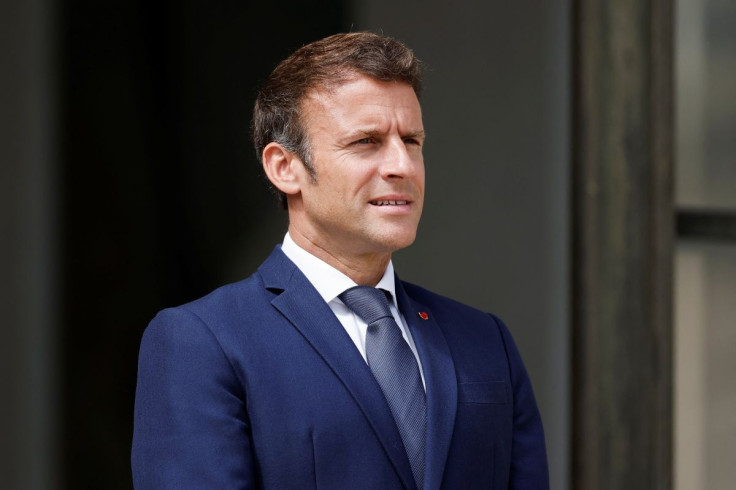What Awaits Macron? Ruling Majority, Hung Parliament, Or Cohabitation

French President Emmanuel Macron may find himself without a ruling majority during his second term and deprived of the ability to push through his economic reform agenda with a free hand after a new left-wing alliance did well in the first round of voting.
The second round will be held on Sunday. Here are three possible outcomes.
ABSOLUTE MAJORITY
Scared off by increasingly strident warnings against Jean-Luc Melenchon's radical left platform, voters elect more than 289 Macron-supported candidates to parliament.
He will have free rein to drive through his manifesto, which includes a contested pension reform. Even so, the president is unlikely to find it as easy to push legislation through parliament as during his first mandate.
His former prime minister, Edouard Philippe, who is widely believed to harbour presidential ambitions, has created his own party, officially part of Macron's majority, and is likely to want a say on legislation, pushing for more conservative policies on pensions and public deficits, for instance.
With a tight majority, even a small contingent of lawmakers could help make Philippe a kingmaker during Maron's second term.
HUNG PARLIAMENT
Macron's coalition fails to reach the 289 mark and does not command a majority of seats despite being the largest party in parliament.
This is an unusual event under the Fifth Republic, and there is no institutional rule to follow to build a coalition, as is the case in countries like Belgium or the Netherlands.
Macron may have to reach out to other parties, probably the centre-right Les Republicains (LR), to form a coalition, which would probably involve offering prominent cabinet roles to LR rivals and manifesto adjustments in return for parliament support.
He could also try to poach lawmakers individually and offer sweeteners to encourage them to break ranks with their party.
Failing that, Macron could be forced to negotiate a majority bill by bill, negotiating the support of the centre right for his economic reforms for example, while attempting to win over centre left support for some social reforms.
That would slow down the pace of reforms and might lead to political deadlock in a country where consensus-building and coalition work is not engrained in the political culture.
But the president would still have a few tricks up his sleeve. He could still, at any time, call for a new snap election, for instance. Or use article 49.3 of the constitution that threatens a new election if a bill is not approved.
Polls show a hung parliament to be the most likely outcome.
COHABITATION
Melenchon defies opinion polls and his NUPES alliance wins a majority in the National Assembly. Under the French constitution, Macron must name a prime minister who has the support of the lower house, and "cohabitation" follows.
Macron is not compelled to pick the person put forward by the majority for premier.
However, should he refuse to name Melenchon, a power struggle would almost certainly ensue with parliament, with the new majority likely to reject any other candidate put forward by Macron.
Cohabitation would leave Macron with few levers of power in his hands and upend his reform agenda. The president would retain the lead on foreign policy, negotiate international treaties, but cede most day-to-day policy-making to the government.
There have been few previous periods of cohabitation in post-war France. They typically led to institutional tension between the president and prime minister, but were surprisingly popular with the electorate.
Polls show this to be the least likely of the three outcomes.
© Copyright Thomson Reuters {{Year}}. All rights reserved.





















